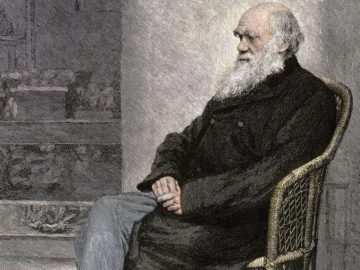Will Dunn in New Statesman:
 “If I have seen further,” Isaac Newton wrote to his fellow scientist Robert Hooke in 1675, “it is by standing on the shoulders of Giants.” Long seen as our greatest scientist’s greatest line, it may have been a sarcastic joke: Hooke, a rival who had claimed credit for Newton’s discoveries and whom Newton came to dislike intensely, was a short man. It was true, however, that Newton was supported by people who remained unseen. This was very much the case with his finances: Newton was an investor in the slave trade. He bought thousands of shares in the South Sea Company, the principal enterprise of which was to transport people from Africa to the Americas. Newton invested in this business for over a decade, making a significant profit (and then losing it in the crash of 1720).
“If I have seen further,” Isaac Newton wrote to his fellow scientist Robert Hooke in 1675, “it is by standing on the shoulders of Giants.” Long seen as our greatest scientist’s greatest line, it may have been a sarcastic joke: Hooke, a rival who had claimed credit for Newton’s discoveries and whom Newton came to dislike intensely, was a short man. It was true, however, that Newton was supported by people who remained unseen. This was very much the case with his finances: Newton was an investor in the slave trade. He bought thousands of shares in the South Sea Company, the principal enterprise of which was to transport people from Africa to the Americas. Newton invested in this business for over a decade, making a significant profit (and then losing it in the crash of 1720).
Art cannot exist without its creator, whatever else they may have thought or done. But knowledge – especially the natural laws of physics and mathematics – is discovered. Why mark it with the personal lives or beliefs of the individuals who found it? As the historian James Poskett points out in Horizons, which tells the story of the global roots of modern science, there are many good reasons to do just that. The call to “decolonise” subjects by acknowledging their cultural context is seen by some as needlessly political, but Poskett argues that science was already politicised. The idea that scientific revolutions are the preserve of the European male genius – Newton, Darwin, Copernicus, Galileo, Einstein – is, he argues, a political project to reinforce the idea that people who support a particular system of government, or live on one side of a border, are more curious, inventive and adept than others.
More here.
